

GIRLS AND WOMEN’S EMPOWERMENT
Girls and women’s health and development are major goals of the AHIP developmental projects. AHIP employs various strategies in its Young people especially girls and women developmental projects. AHIP focuses on young people, especially girls and women’s’ human rights, reduction of poverty, reducing the disparities in politics, education, and wealth creation. Ensuring young people and women have increased economic capacity and power to bargain in society, while improving social relations, power dynamics, gender equity, and increased engagement as advocates for SRHR, particularly for marginalized groups.
Methodology
AHIP focuses more on young people especially girls as traditionally in the northern Nigeria, girls usually get married at an early age hence putting them at a disadvantage. Most of the girls in the projects are uneducated, unskilled, lacking the ability to make educative or informed decisions or make the right choices in life as a result of their low self-esteem. The different strategies are designed with embedded monitoring and evaluation plans, which encompasses pre and post-test, monthly monitoring process and well-structured evaluation. The evaluations provided both qualitative and quantitative assessments and analysis of the implementation processes and results in line with project objectives.
Girls Assets and Economic Capacity development
These findings following a research done in1994 which showed that there is a pressing need for developing girls and women’s economic generating capacity hence the establishment of a vocational skills training center for married, single girls and divorcees as well as disadvantaged boys.
All participants in the vocational center training must go through a livelihood training in basic health, reproductive health, leadership, communications, gender relations, HIV/AIDS, STIs, problems young people faces, values and decision making, negotiation skills, drug abuse, communication , leadership, goal setting , and career development, emergency care, parenting, puberty management, contraception, finding help, happiness at home, self-esteem and confidence building, and other related issues.
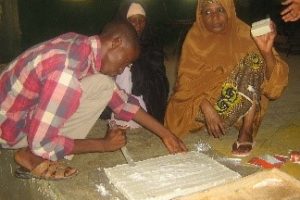
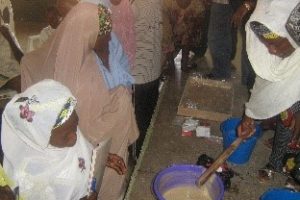
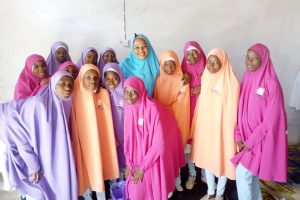
V4C PROJECT: Voices for change is a programme funded by DFIDUK aid, working to strengthen and creating enabling environment for gender equality in Nigeria through various activity. it is implemented within tertiary institutions in kano state the aim of the project is awareness creation and sensitization program on gender issues which have helped to change certain beliefs and societal thinking about women and girls. It reaches its target through its Physical safe space, virtual safe space(purple academy) radio drama program called Purple Tinz. Most of the participants (especially female) have been empowered by the Program in terms of decisions making, negotiation skills and networking amongst themselves thereby creating sustainable impact in the area of leadership, communication and management skills. Students that participated(especially females) in the Program
In-School Education: This unit is mainly concerned with disseminating information to the young people that are still in schools with the aim of making them ambassadors in the art of disseminating information to their peers and other siblings. This unit basically disseminates factual information through skillful facilitation sessions at primary, secondary, tertiary institutions and even religious bodies that have youth focused sections in their place of worships. The project also organizes quiz competitions for schools and it reaches an average of 20 schools and 5,000 students per year. The in school unit is managed by two program assistants and all the 12 young facilitators including trained mentors (teachers). Topics addressed in the in-school program includes Self–Esteem; Problems youth face; Values and Decision making; How to deal with dilemmas; Communication; Right steps to adolescents development; First Aid and Emergency Care; Leadership; Organization and organizing; Stress Management; Problems of growing up; Reproductive Review; Reproductive systems and Puberty management; Male Circumcision and Female Genital Mutilation; Gender Roles and Interpersonal Relationship; Parenting; Problems Teenage Parents Face; Predicting Pregnancy Risks; STI/HIV ” living with and care for HIV persons; rights and obligations of young people; legal protections.
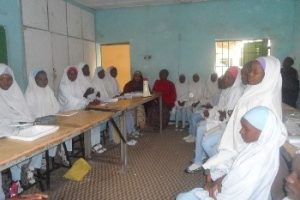
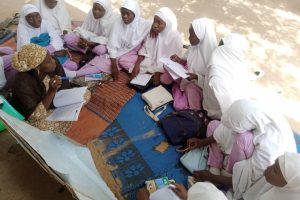

Safe Space (SS) for Social Education
SS program for vulnerable young people in-school and out of school. Girls in ranges of age 10-14, 15-19, and 20-24 are brought together in a segment specific, girl-only platforms in cohorts. AHIP work with them on vital health, rights, and social issues concerning their wellbeing. Each cohort of girls contains 15-20 girl and a trained mentor/facilitator is assign to each cohort. The mentors/facilitators (A respected and trusted person in the community) support and provide guidance to the girls in various sessions of discussion and facilitation in a safe and supportive environment free from violence and abuse. In order to develop girls to improve their live chances and reduce negative consequences in life. The young girls in school are called star girls and seen as role models by their peers.
AHIP is running community based safe spaces for girls’ empowerment. The Project is aimed at increasing girls access and use of health information and services, education, financial literacy and other social services including skills to help reduce their vulnerability to physical and sexual abuse. The benefits the girls stand to achieve through this program include skills acquisition, reproductive health information, enhanced health seeking behavior skills, and access to health services in their community.
Topics in a curriculum that the mentors are trained on and in turn teach the Girls include: Values, Goal Setting, Self Esteem, Gender based Violence, Drug Abuse, all components of Reproductive Health, Communication, and Decision Making, etc. All these are to improve their skills and life chances of the girls. There are some suggested qualities expected of a mentor such as Good Character, Self Esteem, Confidentiality, and Empathy. SS information forms are given to each mentor to fill in order to get the general information for each Safe Space established.
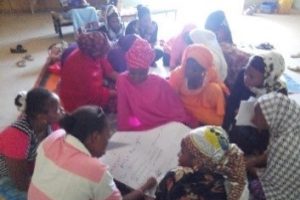
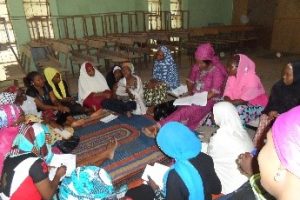
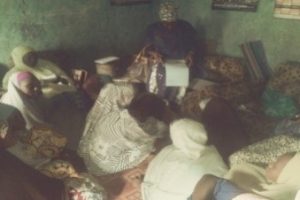
![]()
Etiam magna arcu, ullamcorper ut pulvinar et, ornare sit amet ligula. Aliquam vitae bibendum lorem. Cras id dui lectus. Pellentesque nec felis tristique urna lacinia sollicitudin ac ac ex. Maecenas mattis faucibus condimentum. Curabitur imperdiet felis at est posuere bibendum. Sed quis nulla tellus.
63739 street lorem ipsum City, Country
+12 (0) 345 678 9
info@company.com